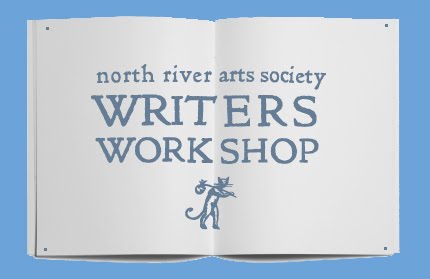
First, before 2009 slips away, I’d like to say thanks to you all for taking part in the NRAS Writers Workshop this year. It’s been a very exciting few months getting this group started and having so many talented writers participate. ’Looking forward to a new year of inspiration, collaboration, and progress!
Speaking of progress…on to a topic that’s all too familiar at this time of year: New Year’s resolutions. I used to think that making resolutions was silly and a sure-fire setup for failure—that is, until I started treating them as “goals” and then set out to achieve them by year’s end.
For example, with writing: one year, my goal was to finish writing my novel. I put “The End” on the first draft just under the wire, on the morning of New Year’s Eve in 2007; popping that champagne cork felt better than ever! The next year, my goal was to revise, revise, revise. My writers’ group, several friends, and a professional editor from Little, Brown (via Grub Street’s annual Manuscript Mart, www.grubstreet.org) critiqued my draft and I kept reworking and refining it all year. Then, in 2009, I set out to submit the final draft to literary agents. Again, I took part in the annual Manuscript Mart, this time with a agent, who gave me the valuable feedback I needed to proceed. Right after Thanksgiving, I sent out my first batch of agent queries (so far, so good), and I’m preparing to send out another batch after the first of the year.
So what’s my New Year’s resolution/goal for 2010? Well, to be honest, it’s always the same: to get my novel published! In the meantime, I’m going to be starting a brand-new novel project that’s been swimming around in my head, treading water while it waits for me to throw it a lifeline. And, hopefully, I’ll be sharing the opening chapters with all of you in the coming months.
What are your writing-related resolutions/goals? Feel free to share them with us by commenting on this blog post…if you haven’t quite settled on one yet, here are some suggestions:
• Make a commitment to your writing: set aside one hour a day to sit down and write. Maybe you’ll turn your lunch hour into “writing hour,” or turn off the TV at night and carve out 60 minutes before bedtime. Some people resolve to get up an hour earlier every day (many authors claim that this is an ideal time to work, before the rest of the day’s obligations clutter up the creative flow), but if you’re not a morning person, you may want to be more realistic!
• Or, start simple: write two pages a day. Author Claire Cook, whose workshop I attended a few years ago, offered this deceivingly simple advice. It didn’t hit me until she said: “If you write two pages a day, you could have a rough draft done in six months.” So I tried it and guess what? It works. Writing two pages a day really helps to keep the momentum going and keeps your head “in the story,” since you’re not walking away from it for a week or two at a time.
• Sign up for a writing class. Grub Street in Boston (www.grubstreet.org) offers a varied menu of options, including courses for beginners.
• Attend author readings and seminars. I’m sure you already have our upcoming Author Series with Randy Susan Meyers (2/27/10) on your calendar, and we’ll work hard to bring you more authors quarterly throughout the year. In addition, local bookstores, including Buttonwood Books and Toys in Cohasset, often host authors for readings of their new books. These types of informal events are a good opportunity to meet published authors and ask them questions about their creative process and their journey to publication.
• Start a journal or blog. I suspect that many of you are already doing this, so I won’t go on and on about it…except to say the usual/obvious comment that writing every day can only help you to become a better writer.
• Find a writing partner. As I mentioned, during the upcoming January Writers Workshop, we’ll open up the floor to help find a match for anyone who’s looking to pair off or break down into smaller groups for more intensive and immediate feedback. This type of arrangement may be just the nudge you need to keep on track with your writing-related goals.
Those are just a few ideas; maybe one will work for you, or maybe you have something entirely different in mind. Whatever you resolve to do, all the best to you (and your writing) in 2010!








